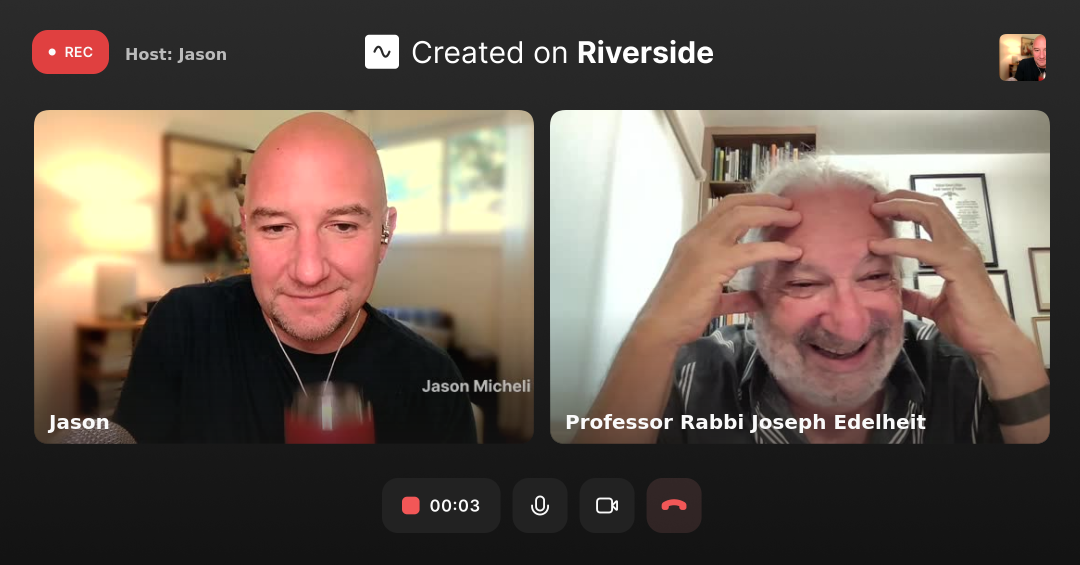Here’s my latest conversation with Rabbi Joseph Edelheit, in which we discuss Ross Douthat’s recent column in The NY Times, “What Students Read Before They Protest.”
Show Notes
Summary
The conversation explores the topic of protests on American university campuses and the line between anti-Semitism and legitimate criticism of Israel. The main themes include the lack of critical perspective among protesters, the narrow focus on progressive preoccupations in university curricula, the scapegoating of Israel, and the influence of outside groups in funding and spreading a pro-Hamas narrative. The conversation also touches on the importance of understanding the values that motivate protests and the need for open discourse and understanding between different religious identities. The conversation explores the current state of university protests and the divisions within the country. It discusses the impact of protests on campuses, the role of university administrators, and the challenges of navigating political diversity. The conversation also touches on the Israeli-Palestinian conflict and the polarization within the Jewish community. The hosts emphasize the importance of dialogue and understanding in addressing these complex issues.
Takeaways
Protesters on American university campuses often lack critical perspective and fail to understand the historical and political complexities of the Israeli-Palestinian conflict.
University curricula tend to focus narrowly on progressive preoccupations, limiting students' exposure to diverse perspectives and historical events.
Israel is often scapegoated and unfairly criticized, while other global conflicts and human rights abuses receive less attention.
Outside groups, including Arab oil money, may be funding and spreading a pro-Hamas narrative on university campuses.
It is important to understand the values that motivate protests and engage in open discourse to bridge the gap between different religious identities. University protests have become a divisive issue, with students seeking disruption and administrators struggling to handle the situation.
The Israeli-Palestinian conflict has created divisions within the Jewish community and has become a polarizing topic on university campuses.
Dialogue and understanding are crucial in addressing these complex issues and finding common ground.
The role of university administrators in navigating political diversity and maintaining a balanced discourse is questioned.
The conversation highlights the need for accountability and addressing racism while avoiding the demonization of certain groups.
Titles
The Scapegoating of Israel
The Narrow Focus of University Curricula Navigating Political Diversity in the University Setting
The Challenges of University Protests and Campus Divisions
Sound Bites
"Let's talk about the tragedy of what has happened in American universities. And I'm going to call it the Please Tell Me What You Mean campaign."
"Is there a difference between a Jew and Israeli and a Zionist? And I'm not just being obnoxious. I'm serious about if you're protesting, can you explain the purpose of the protest?"
"The tragedy of the past three weeks is a moment in American history where the political division and failure of serious discourse has now taken over the university."
"50 encampments across the country. Okay, that feeds a lot of late night jokes."
"Is it easier for me to conceive of an oil Arab conspiracy rather than a far left empty vacuum conspiracy?"
"This is another moment of the dark division in our country."














